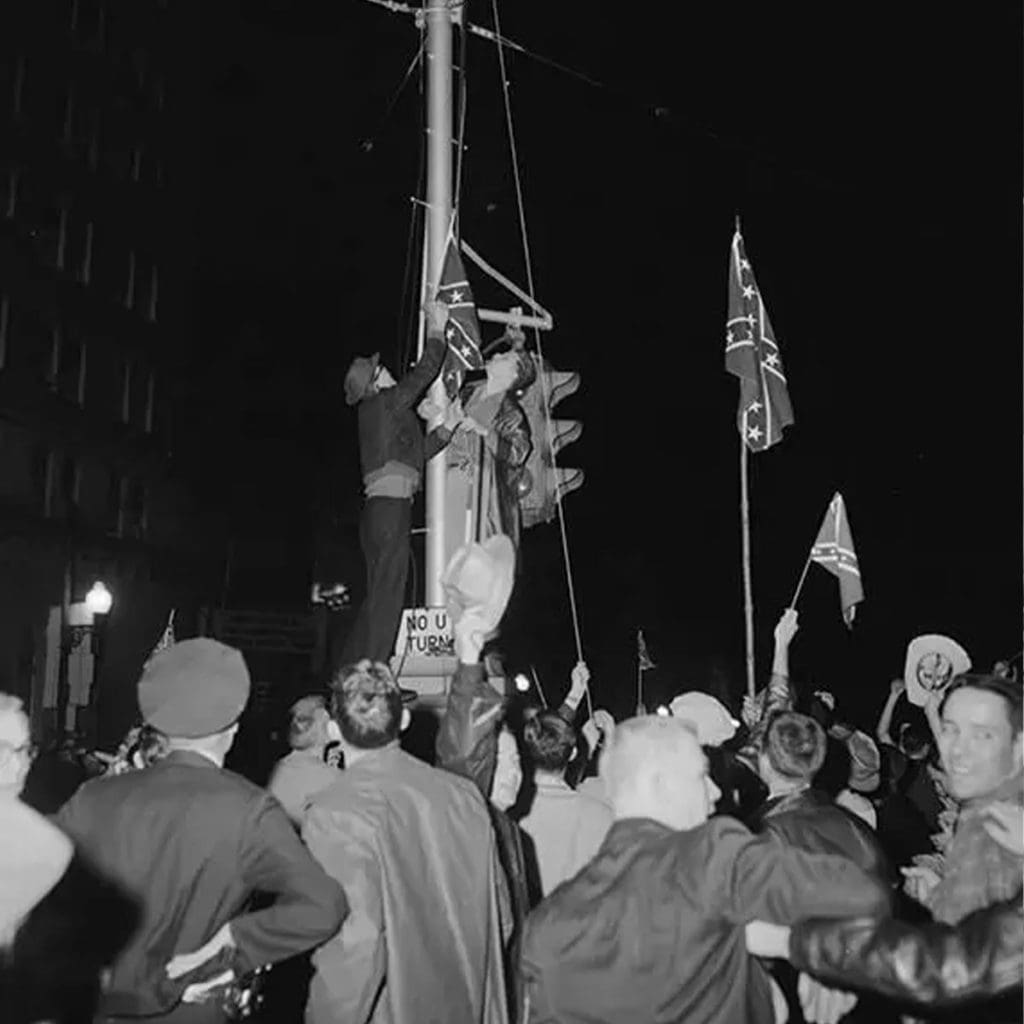The flagpole, erected by the city to honor its war dead, was the site of protest during the civil rights movement. It anchors the commercial corner of the city, at Greensboro Avenue and University Blvd. (formerly Broad Street), and has long been a meeting place for citizens. During the attempt by Autherine Lucy to be the first black to attend the University of Alabama in 1956, white students and white extremists twice marched from the university to the flagpole to stage anti-integration protests.
On February 4, 1956, more than 1,000 people marched downtown from the university, singing “Dixie.” They came to confront integration at the exact location Confederate cadets faced Union soldiers 91 years earlier. Two students stepped forward to address the crowd. The first. Leonard Wilson, told racist jokes as the crowd waved Confederate flags and howled. Walter Flowers, Student Government Ass ociation president. spoke next. He was greeted with hisses and boos. “I am just as proud of this flag as you, but I believe our ancestors who fought under this flag would not be proud of you tonight. Go home!” Two days later, the university’s board of trustees met. Claiming the university cannot provide for her safety, Autherine Lucy was expelled. Jefferson Bennett, assistant to UA President Carmichael, when asked what he thought of the board’s decision, stated, “The mob won.”
Leonard Wilson became the leader of the West Alabama Citizen’s Council. whose membership eventually reached 3,000. Walter Flowers was elected to the US House of Representatives, where he cast the deciding committee vote to impeach President Richard M. Nixon.
The victory won by these mobs and others on campus over Lucy’s effort to join the student body prompted Buford Boone, publisher of The Tuscaloosa News, to pen “What a Price for Peace,” which condemned the rule of violence and demanded that blacks be welcomed at the university in full accordance with the law. Boone’s editorial won the Pulitzer Prize for Editorial Writing in 1957.


